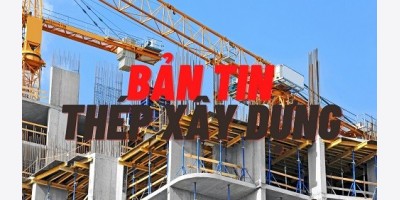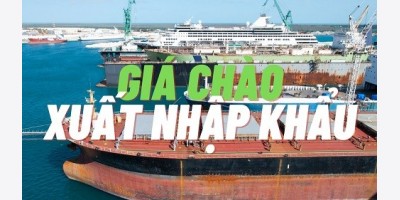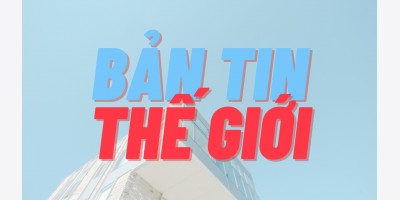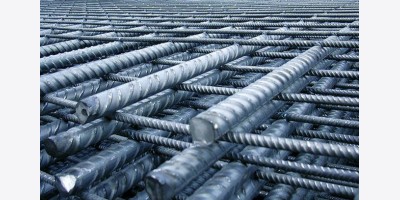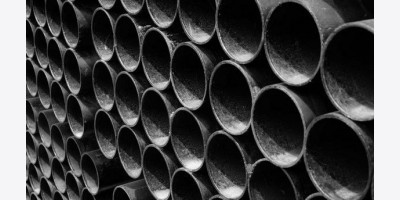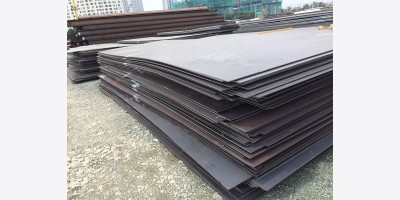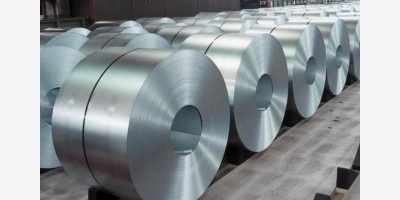Chinese exporters push up rebar prices for SE Asia
| China’s rebar export prices slightly increased over the last week ahead of the Chinese Spring Festival, and most market participants were anticipating further price increases on their return from the holiday. | ||
|
| ||
| Korean hot rolled coil steelmakers have lifted their sales prices to local retailers for February orders of March shipments, retailers said Thursday. Posco recently informed the retail market that it would increase prices by Won 20,000/metric ton ($18/mt) effective from the fourth week of February, a retailer told Platts. Another major steelmaker, Hyundai Steel, has already lifted its HRC prices to distributors by the same margin for February orders, a company official said. | ||
|
| ||
| Rebar traders and stockists in Lebanon are feeling the pinch from sluggish consumption in the construction sector, which has been hit by falling investment as a result of domestic political disputes and the continuing civil war in neighbouring Syria, to which Lebanon is closely tied economically and politically. | ||
|
| ||
| A steel industry benchmark shredded scrap price used to set surcharges on US long products settled down $9/lt on Thursday, but some say that the drop in the key scrap price isn’t enough to warrant a reduction of long product transaction prices. | ||
|
| ||
| Acepar, Paraquay's sole steelmaker, stopped operations this week, a well-placed source at the Villa Hayes plant said on Thursday. | ||
|
| ||
| Business on the Chinese domestic hot rolled coil market had almost ceased by Thursday, with the export market also quiet, as the Spring Festival holidays (February 9-15) approached. | ||
|
| ||
| Hebei I&S targets jump to 3.55 million mt of exports in 2013 | ||
| China’s largest steel producer, Hebei Iron & Steel (Hegang), plans to almost double its finished steel export volumes to 3.55 million metric tons in 2013, according to a company statement. A source close to Hegang told Platts that the export increase in 2013 should be around 1.5 million mt contributed by Hegang subsidiary Tangshan Iron & Steel (Tanggang). | ||
|
| ||
| Posco has now revealed that over the past few weeks construction began on not one but two new coil centers in central Mexico to meet rising auto-sector demand there for processed sheets. | ||
|
| ||
| Trading of high carbon ferrochrome has become quiet in China’s domestic and import markets as Chinese New Year approaches. The post-holiday outlook is mixed, industry watchers said Thursday. | ||
|
| ||
| Prices of Japanese ferrous scrap for export will likely receive a further lift when scrap dealer groupings in Tokyo and Osaka hold their auctions for H2 grade material next week, industry sources in Tokyo said on Thursday. | ||
|
| ||
| In news doubtless welcomed by Indian steelmakers, New Delhi has acknowledged the threat that global steel oversupply poses to the domestic industry. The government has thus promised to monitor steel import tariffs and free trade agreements (FTAs) especially with nations with “mature steel industries”, according to a draft of the National Steel Policy 2012 released by the steel ministry Tuesday. | ||
|
| ||
| Hebei Jingye Group, a privately owned steelmaker in northern China’s Hebei province, plans to raise its crude steel output in 2013 by 43% to 10 million metric tons in response to expectations of improved demand, a company source told Platts Thursday. | ||
|
| ||
| The scrap import market was quiet and flat in East Asia this week, trading sources said Thursday. Importing mills in the region were staying away from the market because they were preparing to close for the Lunar New Year holidays which begin this weekend. | ||
|
| ||
| The Indian government has recognized that land acquisition remains one of the most significant impediments to the addition of greenfield steelmaking capacity in the country, and this week has proposed a solution. | ||
|
| ||
| Hot-dip galvanized coil market activity in Turkey remains slow owing to weak demand from end-use sectors, including automotive, white goods and construction. Buyers remain cautious and are waiting for a downward price adjustment, but producers are unrelenting because their production costs are high, Platts learned from market sources on Thursday. | ||
|
| ||
| The Belgian cut-to-length coil service centre, Limburg Staalservice Center (LSC), has upgraded its HRC and CRC decoiling capacity to enable its unit in Bree to process material of up to 25mm thick and 2,100mm wide, the company told Platts. | ||
|
| ||
| Tata Steel has announced a €2.3 million investment at its IJmuiden steelworks in the Netherlands, to develop next-generation steels for the automotive industry. | ||
|
| ||
| The Greek rebar mill Halyvourgiki has no current plans to restart production at its works near Athens, as the output has stopped completely since beginning of January, sources in the market told Platts. | ||
|
| ||
| Turkish integrated long steelmaker Kardemir has reduced its domestic bar prices owing to the softening scrap market, Platts learned from the company. | ||
|
| ||
| The chief executive officer of the Italy-based sections and merchant bar producer Duferdofin Nucor, Domenico Campanella, has additionally been appointed commercial director of the company, Platts learned from a company executive. This follows the departure of Federico Guiducci who is to became the chief financial officer of the Swiss trading company Trasteel | ||
|
| ||
| Turkish local buyers booked significant tonnages of billet and rebar from Kardemir and an integrated producer in the South on Thursday, as semi-product prices held level on the start of the week, market players told Platts. | ||
|
| ||
| Austrian steel making and processing group Voestalpine does not intend to reduce capacity utilisation in the coming months despite its doubts that recent price increases will stick, CEO Wolfgang Eder told a press conference yesterday. | ||
|
| ||
| UK domestic scrap price settlements are likely to head down in February with Tata Steel, the major buyer in the market, looking for a £5/metric ton cut in the price of shredded. However, market players suggested that the decrease would have been larger if sterling were stronger. | ||
|
| ||
| Latvian rebar producer Liepajas Metalurgs is endorsing the introduction of blanket EU restrictions on ferrous scrap exports to third countries as a measure to protect the European Union’s steel industry, the company's representative told Platts. | ||
|
| ||
| In 2012 Italy’s steel imports from non-EU countries plunged by 32.9% to 5.88 million metric tons compared to 2011, while exports outside the EU increased by 19.1% to 5.89 million mt, according to the latest data from the local steelmakers' federation Federacciai. | ||
|
| ||
| Turkish domestic automotive sales increased notably in January, mainly due to low interest rates in the country which encouraged borrowing among buyers, Platts learned from the Turkish Automotive Distributors Association (ODD). | ||
|
| ||
| Buyers in Europe and the Middle East are receiving new higher offers for hot rolled coils coming from Russian and Ukrainian steelmakers, Platts heard in the market this week. | ||
|
| ||
| The European Commission has granted approval to a joint venture project called Severstal-SSC-Vsevolozhsk between the Russian mining and steelmaking company Severstal and Japanese trading house Mitsui, Brussels said on February 7. | ||
|
| ||
| American plate prices further declined this week as falling scrap prices offered little support for finished product pricing and waning demand brought lead times to less than three weeks. | ||
|
| ||
| The US flat-rolled market remains steady, and, despite an expected $20/long ton dip in scrap prices, some players believe it’s poised to improve. | ||
|
| ||
| Weak North American flats pricing in the fourth quarter cut into global steel firm ArcelorMittal’s regional EBITDA despite both quarterly and yearly improvement in shipment volumes. | ||
|
| ||
| ArcelorMittal’s North American long products segment shipments were relatively even in 2012, compared to 2011, though fourth quarter shipments picked up. | ||
|
| ||
| Bull Moose Tube has pulled back its increase on A500 hollow structural sections, market sources report. | ||
|
| ||
| Wheatland Tube of the US is lending its weight to the push for higher standard pipe base pricing. | ||
|
| ||
| As part of an administrative review, the US Department of Commerce preliminarily found that two Chinese OCTG producers received countervailable subsidies during the period of review. | ||
|
| ||
| ArcelorMittal’s South American flat product shipments rose 43.7% in the fourth quarter of 2012, compared with Q3, but declined 5.5% from the year ago quarter, according to the company's financial results released earlier this week. | ||
|
| ||
| ArcelorMittal's longs shipments from its South American operations fell in both quarterly and yearly comparisons in 2012. The company's South American longs shipments totaled 5.3 million mt last year, down 6% from 5.66 million mt in 2011, according to ArcelorMittal's financial results released this week. | ||
|
| ||
| Brazil's foreign trade bureau Secex has extended by six months the deadline for its antidumping probe into imports of non-grain-oriented (NGO) electrical sheet from China, Taiwan and South Korea. | ||
|
| ||
| Brazil’s national foreign trade ministry Mdic has requested more time "to deepen its technical analysis” of a proposed export tax on ferrous scrap in the country. | ||
|
| ||
| Venezuela integrated steelmaker Sidor produced about 157,258 mt of crude steel in January, an increase of 18.2% year on year and up 89% from the previous month. However, the January figure was 45% below the company's targeted mark of 287,000 mt for the month. | ||
|
| ||
| Argentina’s automotive production in January was remarkably lower in a month-on-month comparison, closing 2013’s first month 28% below the December 2012 figure, according to data released by the country’s auto association Adefa. | ||
|
| ||
| South African steel merchant Alert Steel has lost its financing by domestic bank Nedbank. The latter has sold its Alert debt to third parties AKM Sons Property Trust and Southern Palace Investments, according to announcement by Alert late last week. It added: “The requirements of the new creditors are unclear at this stage”. | ||
|
| ||
| Libyan Iron & Steel Co (Lisco) is moving closer to normality with four out of six electric arc furnaces in operation and having produced 12,199 metric tons of slabs and 37,232 mt of billets in December, a Lisco executive told Platts this week. All long and flat product mills are working with the exception of the hot-dip galvanizing line and double-strand line. | ||
|
| ||
| A high Australian dollar and weak demand for steel has seen miner and steelmaker Arrium Ltd take a A$474 million (US$489 million) writedown of its steel assets, the company said late Wednesday. These include an impairment of A$431 million at its OneSteel steel manufacturing unit and A$43 million at its distribution segment. | ||
|
|
| Despite the modest advance in most manufacturing PMIs for January, doubts remain about the extent to which the rebound in world business sentiment is fuelled by restocking, or by a serious upturn in end-use activity, whether in manufacturing, construction or elsewhere. Steel prices nonetheless strengthened, with January’s Platts World Steel Price Tracker rising 2.2% month-on-month. |





